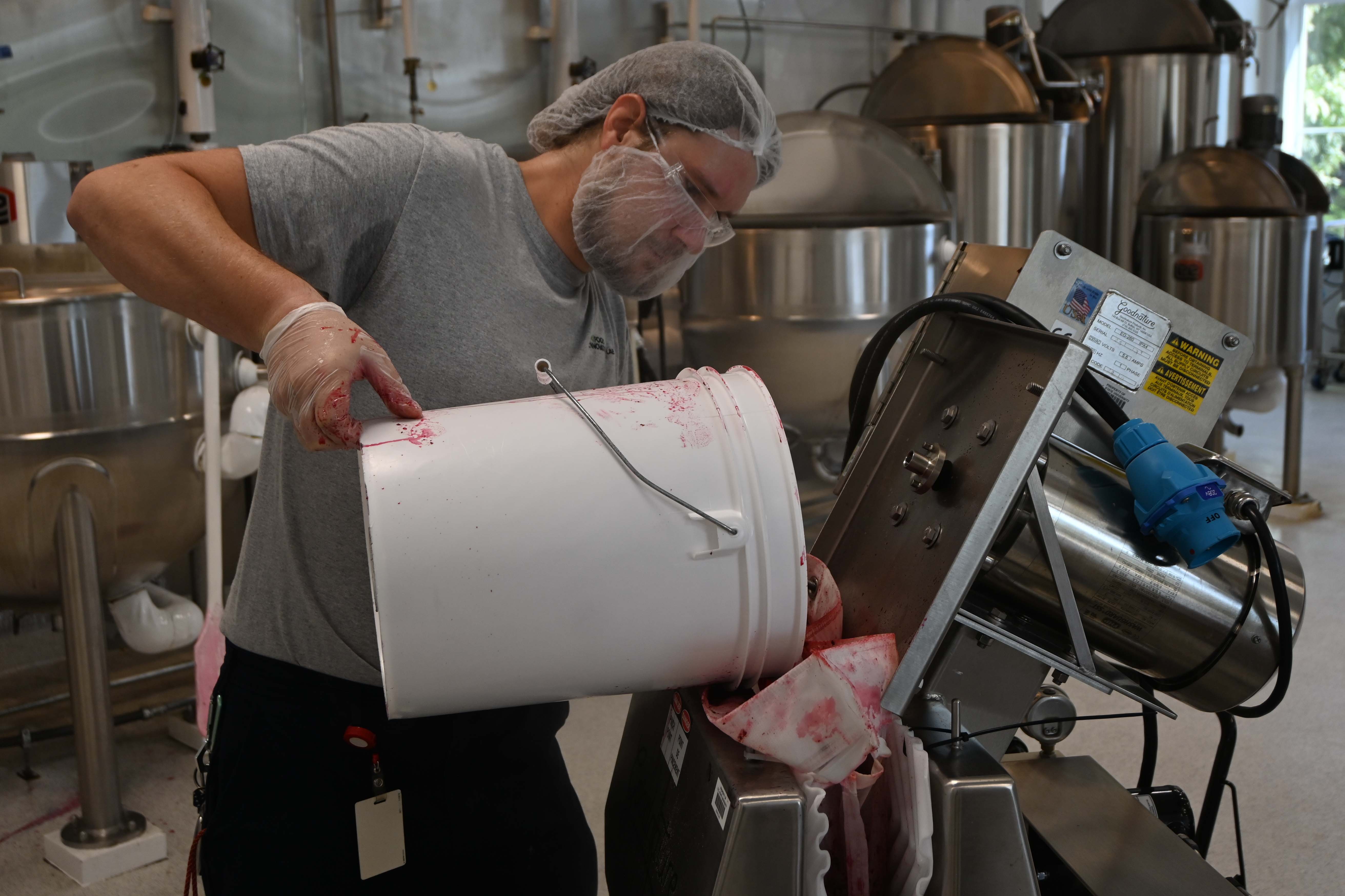Recalls include ham from NC, and ground beef
Published 10:28 am Thursday, October 4, 2018
Johnston County Hams, a Smithfield establishment, is recalling approximately 89,096 pounds of ready-to-eat ham products that may be adulterated with Listeria monocytogenes, the U.S. Department of Agriculture’s Food Safety and Inspection Service (FSIS) announced today.
The ready-to-eat deli-loaf ham items were produced from April 3, 2017, to Oct. 2, 2018. The following products are subject to recall: [View Labels (PDF only)]
- Varying weights of 7 to 8-lbs. plastic-wrapped “JOHNSTON COUNTY HAMS, INC. COUNTRY STYLE FULLY COOKED BONELESS DELI HAM.”
- Varying weights of 7 to 8-lbs. plastic-wrapped “Ole Fashioned Sugar Cured The Old Dominion Brand Hams Premium Fully Cooked Country Ham” with Sell-By dates from 4/10/2018 to 9/27/2019.
- Varying weights of 7 to 8-lbs. plastic-wrapped “Padow’s Hams & Deli, Inc. FULLY COOKED COUNTRY HAM BONELESS Glazed with Brown Sugar.”
- Varying weights of 7 to 8-lbs. plastic-wrapped “Premium Fully Cooked Country Ham LESS SALT Distributed By: Valley Country Hams LLC” with Sell-By dates from 4/10/2018 to 9/27/2019.
- Varying weights of 7 to 8-lbs. plastic-wrapped “GOODNIGHT BROTHERS COUNTRY HAM Boneless Fully Cooked.”
The products subject to recall bear establishment number “EST. M2646” inside the USDA mark of inspection. These items were shipped to distributors in Maryland, North Carolina, New York, South Carolina and Virginia.
Eating food contaminated with Listeria monocytogenes can cause listeriosis, a serious infection that primarily affects older adults, persons with weakened immune systems, and pregnant women and their newborns. Less commonly, persons outside these risk groups are affected.
Listeriosis can cause fever, muscle aches, headache, stiff neck, confusion, loss of balance and convulsions sometimes preceded by diarrhea or other gastrointestinal symptoms. An invasive infection spreads beyond the gastrointestinal tract.
In pregnant women, the infection can cause miscarriages, stillbirths, premature delivery or life-threatening infection of the newborn. In addition, serious and sometimes fatal infections in older adults and persons with weakened immune systems.
Listeriosis is treated with antibiotics. Persons in the higher-risk categories who experience flu-like symptoms within two months after eating contaminated food should seek medical care and tell the health care provider about eating the contaminated food.
Consumers with questions regarding the recall can contact Rufus Brown, Johnston County Hams plant manager, at (919) 934-8054.
Ground beef
JBS Tolleson Inc., a Tolleson, Ariz., establishment, is recalling approximately 6,500,966 pounds of various raw, non-intact beef products that may be contaminated with Salmonella Newport.
The raw, non-intact beef items, including ground beef, were packaged on various dates from July 26, 2018, to Sept. 7, 2018. The following products are subject to recall: [Products List (PDF) (or XLSX) | Product Labels (PDF only)]
The products subject to recall bear establishment number “EST. 267” inside the USDA mark of inspection. These items were shipped to retail locations and institutions nationwide.
An investigation has identified 57 patients from 16 states with illness onset dates ranging from Aug. 5 to Sept. 6.
FSIS will continue to work with public health partners and will provide updated information should it become available.
Eating food contaminated with Salmonella can cause salmonellosis, one of the most common bacterial foodborne illnesses. The most common symptoms of salmonellosis are diarrhea, abdominal cramps, and fever within 12 to 72 hours after eating the contaminated product. The illness usually lasts 4 to 7 days.
Most people recover without treatment. In some persons, however, the diarrhea may be so severe that the patient needs to be hospitalized. Older adults, infants, and persons with weakened immune systems are more likely to develop a severe illness. Individuals concerned about an illness should contact their health care provider.
FSIS is concerned that some product may be frozen and in consumers’ freezers. Consumers who have bought these products are urged not to consume them. These products should be thrown away or returned to the place of purchase.
Consumers with questions regarding the recall can contact the JBS USA Consumer Hotline at (800) 727-2333.
Ongoing recall
Cargill Meat Solutions, a Fort Morgan, Colo,. establishment, has recalled approximately 132,606 pounds of ground beef products made from the chuck portion of the carcass that may be contaminated with Escherichia coli O26.
The ground beef items were produced and packaged on June 21, 2018. The following products are subject to recall: (Products List) [View Labels (PDF only)]
The products subject to recall bear establishment number “EST. 86R” inside the USDA mark of inspection. These items were shipped to retail locations nationwide. [Distribution List PDF]
On Aug. 16, 2018, FSIS was notified of an investigation of E. coli O26 illnesses. FSIS, the Centers for Disease Control and Prevention, and state public health and agriculture partners determined that raw ground beef was the probable source of the reported illnesses. The epidemiological investigation identified 17 illnesses and one death with illness onset dates ranging from July 5 to July 25, 2018.
The Cargill Meat Solutions’ ground beef products were identified following further investigation related to Recall 072-2018, conducted on Aug. 30, 2018, where ground beef products were recalled in connection with the E. coli O26 outbreak. FSIS’ traceback information indicated that patients consumed ground beef products purchased at various retail stores that were supplied by Cargill Meat Solutions.
E. coli O26, like the more common E. coli O157:H7, can make people ill from 2-8 days (average of 3-4 days) after exposure to the organism.
Most people infected develop diarrhea (often bloody) and vomiting. Some illnesses last longer and can be more severe. Infection is usually diagnosed by testing of a stool sample.
Vigorous rehydration and other supportive care is the usual treatment; antibiotic treatment is generally not recommended. Most people recover within a week, but rarely, some develop a more severe infection.
Hemolytic uremic syndrome (HUS), a type of kidney failure, is common with STEC O26 infection. HUS can occur in people of any age but is most common in children under 5 years old, older adults and persons with weakened immune systems. It is marked by easy bruising, pallor and decreased urine output. Persons who experience these symptoms should seek emergency medical care immediately.
Consumers with questions regarding the recall can call 1-844-419-1574.





